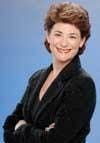Think Abundance, Sell Scarcity
I asked Sandra Melmed, one of Dallas’ top 10 residential real estate agents, what made her so successful. She said, “I’m famous for talking people out of buying houses.”
“What?” I asked. “How can you be a top seller when you’re known for not closing the sale? That seems like an oxymoron.”
Sandra replied, “I’ll give you an example. The other day I talked my clients out of buying a home they fell in love with. Even though they really liked it, this home would not resell and I knew I could find a better solution. I could’ve made the sale and been done. Instead, I’ll spend more time with this couple.”
She went on to say, “My goal is not to make one sale. My goal is to make a relationship. If I sold them this house, they would ultimately become unhappy. My business is successful because I have long-term, happy clients who know I have their best interests in mind.”
Sandra’s theory of nonselling reminds me of two principles for successful case presentations: First, enter with an abundance mentality vs. a shortage mentality. Second, sell scarcity.
Abundance mentality vs. a shortage mentality
Shortage mentality implies that you think you don’t have enough - enough business, money, referrals, or (fill in the blank).
Abundance mentality means that there is not only enough; there’s plenty to go around.
Let’s apply this principle to your dental office. You look ahead at your schedule and realize that you’re going to be slow during the next few months. Shortage mentality begins to creep into your consciousness. You become a little desperate during case presentations because you need the business. You come across pushy and whiney.
Another scenario: Your schedule has too many holes and you’re not thrilled. Yet, you remind yourself of your abundance mentality. You know you won’t be a good fit with every person. You also know you’ll stay busy because there are a lot of people in your community who need a lot of dentistry. Despite your slow calendar, you present your case presentations with confidence. You come across with gravitas.
Your patients smell whether you’re desperate or confident.
Think abundance during case presentations. There is an abundance of opportunities.
Like the successful real estate agent, you are not selling because you have to put dollars on the books; you are getting acceptance by providing excellence matched to your patients’ needs.
Scarcity sells
How many times have you thought about purchasing a pair of shoes? There is only one pair in your size left on the sales rack. You question whether you need one more pair of shoes. Then someone toys with “your” shoes. All of a sudden, you must have them.
Scarcity impacts value. Opportunities seem more valuable when availability is limited. You almost become physically agitated when you watch something become less accessible. Think about times you may have spent in line at a gas station during a perceived gas shortage.
Think abundance, sell scarcity. Go into case presentations knowing there is enough for every dentist on the planet to stay busy and fulfilled. Then, differentiate yourself. Ask yourself, “What do I have that is scarce elsewhere?”
According to Dr. Robert Cialdini, author of “Influence: The Psychology of Persuasion,” “The feeling of being in competition for scarce resources has powerfully motivating properties.” He asks, “Remember the run on Cabbage Patch Dolls? The flu serum shortage?”
Dr. Cialdini comments, “People are mobilized to action more by losing something vs. gaining something.” He uses the example of a major ad campaign by Bose Corporation. Bose had unrolled a revolutionary new system. Their ads read “New Bose System.” People were not buying. Dr. Cialdini changed the words to “Here’s what you’ve been missing.” Sales have soared.
What you have to provide is rare. Keep your shortage mentality at bay while suggesting your scarce commodity.
Here’s how you can put this principle to good use as you continue to speak to sell:
What will happen if patients do not buy what you are selling? The idea of potential loss plays a large role in decision making. For example, if someone wants to hire me as an executive speech coach to help with a major keynote, I ask, “What will happen if you don’t put your energy and resources into this endeavor?” My prospect can then visualize a less-than-stellar performance that might have an impact on stock price, company motivational level, or volume sales.
Principles to thinking with abundance and selling scarcity include:
- knowing there are a lot of people who need what you are selling
- remembering that your service will not be a good fit with everyone
- coming from a place of confidence rather than a feeling of desperation
- figuring out what makes your commodity rare, and
- asking patients what would happen if they did not buy what you are selling.
© 2006 Karen Cortell Reisman, MS
Karen Cortell Reisman, MS
Reisman, author of “The Naked Truth About Giving Great Speeches,” teaches organizations how to increase productivity by communicating effectively. She has been a visiting faculty presenter at The Pankey Institute, a speaker at dental meetings, and president of Speak for Yourself® for 14 years. To buy Reisman’s book or purchase her other CDs, e-mail her at [email protected]. Reach Reisman at www.SpeakForYourself.com.

